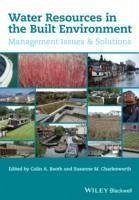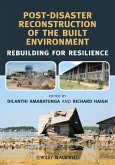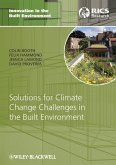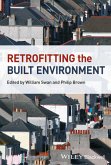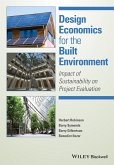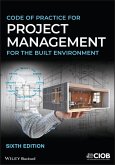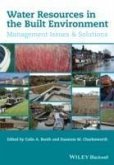Water management is a key environmental issue in controlling of floods and reducing droughts. This book provides analysis of the main issues, offering solutions and describing good practice.
Water Resources for the Built Environment: management issues and solutions develops an appreciation of the diverse, complex and current themes of the water resources debate across the built environment, urban development and management continuum. The integration of physical and environmental sciences, combined with social, economic and political sciences, provide a unique resource, useful to policy experts, scientists, engineers and subject enthusiasts. By taking an interdisciplinary approach, water resources issues and impacts on the built environment are presented in the inventive and strategic setting of considering the constraints of delivering potable water to an ever-demanding society who, at the same time, are increasingly aware of living in an urban landscape where excessive surface water creates a flood threatened environment - hence, the need to portray a balance between 'too little vs. too much'.
This unique approach to the water resources debate presents a multifaceted collection of chapters that address the contemporary concomitant issues of water shortage and urban flooding and proffers solutions specifically for the built environment.
The book is structured into three parts: the first part (Sections 2, 3 and 4) addresses management issues and solutions to minimise water shortages and provide water security for society; whilst the second part of the book (Sections 5 and 6) addresses management issues and solutions to control excessive rainfall and minimise flooding impacts. The third part (Section 7) contextualises the issues of the earlier sections within international case studies from the developing world.
Water Resources for the Built Environment: management issues and solutions develops an appreciation of the diverse, complex and current themes of the water resources debate across the built environment, urban development and management continuum. The integration of physical and environmental sciences, combined with social, economic and political sciences, provide a unique resource, useful to policy experts, scientists, engineers and subject enthusiasts. By taking an interdisciplinary approach, water resources issues and impacts on the built environment are presented in the inventive and strategic setting of considering the constraints of delivering potable water to an ever-demanding society who, at the same time, are increasingly aware of living in an urban landscape where excessive surface water creates a flood threatened environment - hence, the need to portray a balance between 'too little vs. too much'.
This unique approach to the water resources debate presents a multifaceted collection of chapters that address the contemporary concomitant issues of water shortage and urban flooding and proffers solutions specifically for the built environment.
The book is structured into three parts: the first part (Sections 2, 3 and 4) addresses management issues and solutions to minimise water shortages and provide water security for society; whilst the second part of the book (Sections 5 and 6) addresses management issues and solutions to control excessive rainfall and minimise flooding impacts. The third part (Section 7) contextualises the issues of the earlier sections within international case studies from the developing world.
Dieser Download kann aus rechtlichen Gründen nur mit Rechnungsadresse in D ausgeliefert werden.

